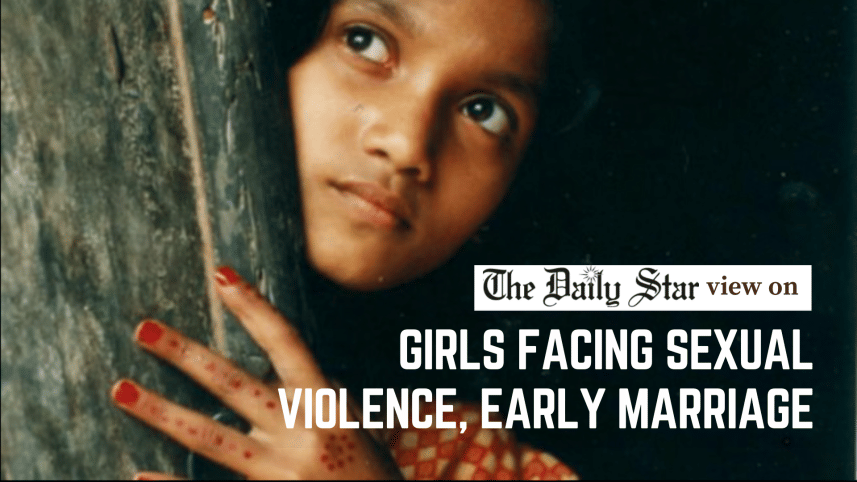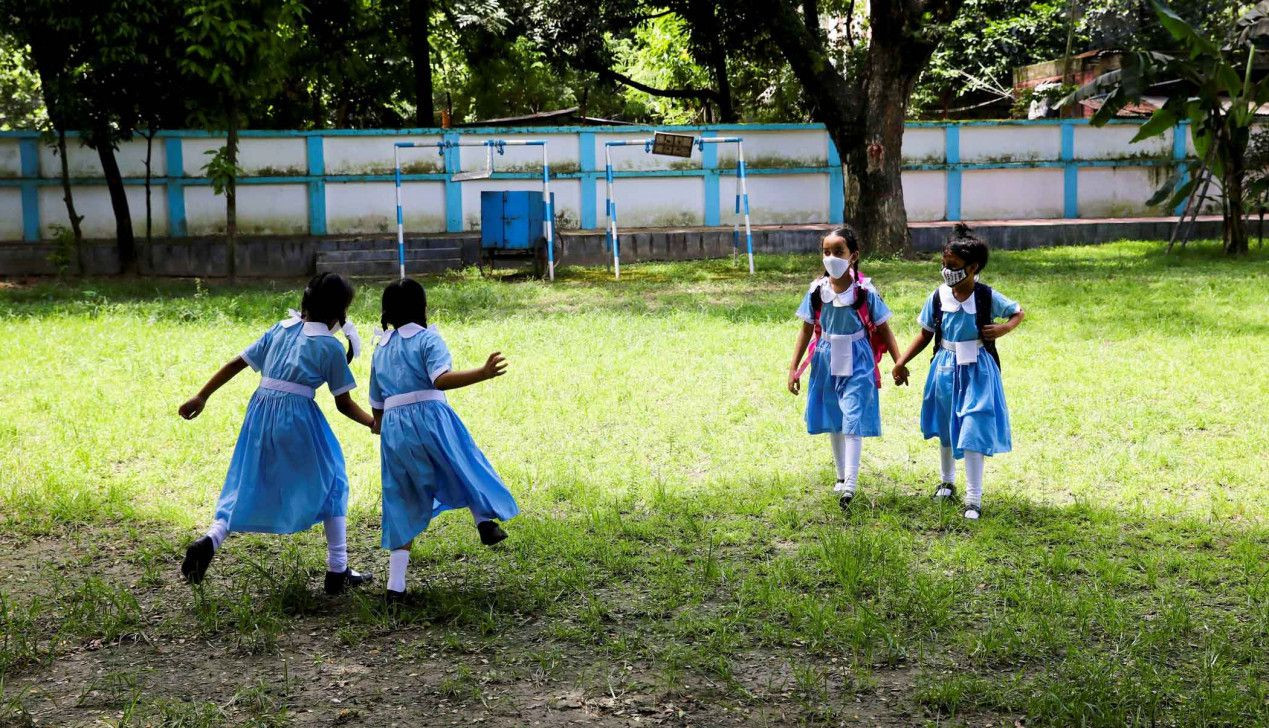Violence against girls is sabotaging our future

Bangladesh has made major strides toward human development outcomes over the years, but beneath this narrative of progress lies a corrosive social and judicial failure: the systemic betrayal of girls. New data, detailing a sharp spike in violence against minors and chronic exposure to child marriage, suggests the country's development gains are being undermined by the culture of impunity.
The statistics are unforgiving. Police records for the first eight months of 2025 show 3,589 rape cases filed nationwide, with a staggering 1,172 involving minors. The official figure, however, is often viewed as the floor rather than the ceiling of a true crisis. Civil society groups report a frightening acceleration: the rape of girl children rose by 83 percent in the first nine months of the year, while attempted rapes soared by 163 percent. Alarmingly, 20 percent of child rape victims in the initial months of 2025 were aged six or younger, confirming that the most vulnerable ones are facing the highest risks.
This physical violence is compounded by a structural violence—that of early marriage. A recent Plan International report shines a stark light on the devastating economic and personal consequences of this detrimental practice worldwide, despite it being illegal. Of the young women married as children, nearly one in three are now divorced, facing stigma and acute financial hardship, the report reveals. When poverty forces a family to marry off a daughter at 14, as one young Bangladeshi woman testified, the immediate financial relief is dwarfed by the long-term cost of lost productivity, deteriorating health, reduced lifetime earnings, and the cycle of dependence. These girls, robbed of educational opportunities, become long-term dependents rather than economic contributors, locking families into the very poverty trap they sought to escape.
The link between social violence and economic exploitation is tragically symbiotic. Fear of sexual harassment and abduction often drives families to seek the perceived "protection" of early marriage, a coping mechanism that ultimately exposes girls to domestic violence and financial dependency. The government's response to both facets of this crisis—preventive and punitive—is clearly inadequate.
The authorities must ensure rapid, transparent, and robust investigation and prosecution of sexual violence cases, dismantling the culture of impunity that shields abusers. It's time to reform the Child Marriage Restraint Act to plug existing legal loopholes. There also need to be social protection schemes in place to help vulnerable families keep their daughters in school.
The annual observance of International Day of the Girl Child on October 11 underscores a persistent policy gap: the failure to protect and leverage female human capital. With this year's theme, "the girl I am, the change I lead," the focus shifts to recognising girls not as passive victims but as frontline agents of change, a position that requires immediate strategic investment. Bangladesh's economic future depends on the full engagement of its populace. Allowing violence and structural exploitation to sideline millions of women is an act of economic self-harm. We, all of us together, must commit to concrete action to protect our girls and secure our future.



 For all latest news, follow The Daily Star's Google News channel.
For all latest news, follow The Daily Star's Google News channel. 

Comments